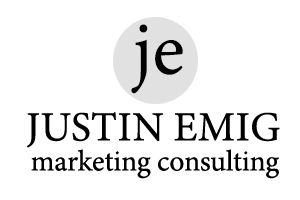Why Google Really Doesn’t Need @alphabet on Twitter
Similar to have the media destroyed Google after the announcement of Alphabet, swift searching pundits also pointed out that Alphabet doesn’t even own the Twitter handle @alphabet. How amateur hour of Larry and Sergey. Don’t they know that the real estate claiming process is the most important part of social media? Rookies….
But the fact is that the @alphabet twitter handle isn’t important, for many reasons.
Many parent companies do not own the Twitter handle associated with that parent company’s name.
For example, parent company extraordinaire Procter & Gamble own the Twitter handles of @tide, @crest, and @charmin, but they do not own @pg, which is secured by PG Holmlov and his 573 followers. Staying within the P&G family, Shulton is the entity behind Old Spice, but @shulton is an account with 8 followers.
It is also more than just P&G, as Johnson & Johnson owns Twitter handles for but they do not own the @jj handle, which is owned by Josie Jeffries and her 3000 followers.
Owner of everything in the universe, Warren Buffet and Berkshire Hathaway do not own @berkshire, @berkshirehathaway, or @bh.
The fact that pundits were hammering Alphabet for not claiming the @alphabet Twitter handle is again, shortsighted.
Do parent companies need a Twitter handle?
Similar to that of the other brands listed above, is there a real need for a parent company, who does not produce a product with the name Alphabet to own a Twitter handle? What would this handle share? Investor information, new acquisitions, product features? This outward only messaging goes against everything that successful Twitter accounts possess today, making it dated methodology.
Who will need @alphabet when you own the platform
Ok, ok, this one might be a bit speculative, but what is the need of owning @alphabet when you can umm own the platform it is on. If G is for Google and then T is for Twitter! Add W for wings, C for Calico, L for Life Sciences, etc. to the mix and you are filling out the err... Alphabet.
As if the claiming of a Twitter handle is a barometer of success for an organization or parent company announcement, Alphabet chose not to claim any property on Twitter. This move apparently showcases their lack of interest in having a public facing Twitter entity to handle the parent company entity, owning the rest of the mothership. As I mentioned in the first part of this series, we would be incredibly naive to think that the senior leadership at Google just happened to miss the development of a Twitter handle for Alphabet, as well as claiming the .com TLD for the new entity. This move was incredibly well thought out, and missing these two obvious web culture requirements wouldn’t have gone unnoticed.
